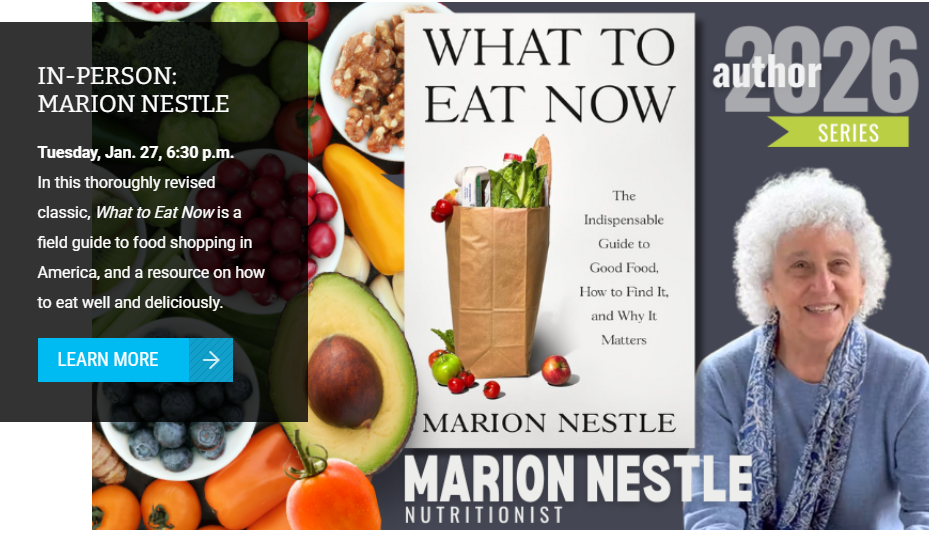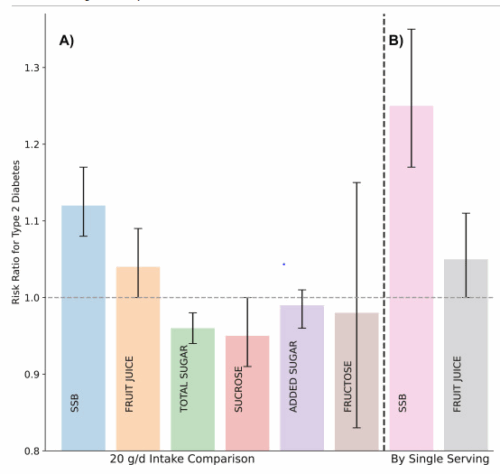Information here. Register here.

Sugar has long been thought to increase risks for type 2 diabetes, but whether it really does has not been easy to prove and is still a matter of debate.
A new study suggests one reason why. It distinguishes between the effects of sugar in beverages (increased risk) and foods (no increased risk).
Method: The study analyed prospective cohort studies reporting relative measures of incident T2D [type 2 diabetes] risk by categories of dietary sugar (total, free, added, fructose, sucrose) or 2 beverage sources (non-diet sugar-sweetened beverages [SSBs], fruit juice) in healthy adults.
Results:
 The figure shows the effect of 20 g/d sugar intake on T2D risk, in comparison to typical doses of SSB and fruit juice.
The figure shows the effect of 20 g/d sugar intake on T2D risk, in comparison to typical doses of SSB and fruit juice.
A) shows the bar plot illustrating the summary effect of a 20 g/d intake for different sugar types on risk of T2D.
B) compares these doses to typical servings sizes per day of SSBs (39 g/d) and fruit juice (23.3 g/d).
Conclusion: These findings suggest that dietary sugar consumed as a beverage (SSB and fruit juice) is associated with incident T2D risk. The results do not support the common assumption that dietary sugar (i.e., total sugar and sucrose), irrespective of type and amount, is consistently associated with increased T2D risk.
Comment: Sugar is still nutritionally empty, causes tooth decay(especially if water is unfluoridated), and is best consumed in small amounts. But if this finding holds up, the moral is clear: Don’t drink your calories.